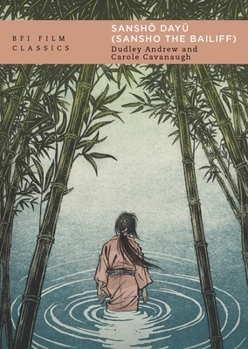Book Overview
Kenji Mizoguchi's masterpiece Sansh Day (1954) retells a classic Japanese folktale about an eleventh-century feudal official forced into exile by his political enemies. In his absence, his children fall under the corrupting influence of the malevolent bailiff Sansho. In their study of the film, film scholar Dudley Andrew and Japanese literature professor Carole Cavanaugh highlight the cultural, aesthetic and social contexts of this film which is at once rooted in folk legend and a modern artwork released in the aftermath of World War II. This edition includes a new foreword by the authors in which they consider the film's contemporary parallels in modern slavery and children torn from their families by malevolent authorities.
Format:Paperback
Language:English
ISBN:1838719326
ISBN13:9781838719326
Release Date:May 2020
Publisher:British Film Institute
Length:96 Pages
Weight:0.40 lbs.
Dimensions:0.3" x 5.4" x 7.4"
Customer Reviews
1 rating
Useful and Interesting
Published by Thriftbooks.com User , 18 years ago
A short introduction to Kenji Mizoguchi's cinematic masterpiece Sansho Dayu, one of the very greatest films ever made. Contains two essays offering two different perspectives and evaluations. Carole Cavanaugh compares and contrasts the film with its literary sources and lauds Mizoguchi's version as a profoundly beautiful vision of indissoluble family ties and a trenchant critique of the Confucian militarism implicit in some earlier versions of the story. Dudley Andrew examines the socio-political aspects of the film's creation & international reception and criticizes what he perceives as Mizoguchi's bleak existentialist vision, quietism, and "inhuman humanism". Each essay contains much useful information and many interesting insights. The prose is clear but a bit stiff and academic.






